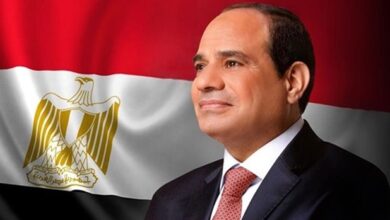
Federation of Egyptian Industries Chief Mohamed al-Seweidy said the federation will submit a request to the Trade and Industry Ministry to re-evaluate the joint free trade agreement with Turkey, as producers increasingly complain about harm against the local industry due to the agreement allowing Turkish products to enter Egyptian markets without customs duties.
Seweidy told Al-Masry Al-Youm that Egypt is undergoing exceptional circumstances and that it has the right to review agreements with any country to achieve its economic interests according to international standards.
He denied that the request had been influenced by the political tension between Egypt and Turkey, saying the federation separates political relations led by leaders and economic relations linking peoples.
He also stressed that Turkish businessmen who have investments in Egypt could not be penalized for their government’s stances, which might change at any point. Seweidy added that government should declare a clear stance protecting Turkish investments.
Hassan Ashra, member of the Chamber of Textile Industries board, expressed the concerns of Egyptian and Turkish businessmen. He said no new contracts have been made since the Egyptian government summoned its ambassador, with businessmen fearing escalation that could influence the economy or suspend the joint free trade agreement.
Meanwhile, the Trade and Industry Ministry referred to stability in trade relations with Turkey and that Turkey's trade mission in Egypt is still open in Egypt.
Ministry Deputy Saeed Abdullah said the trade mission in Istanbul is still working there, adding that the action taken with the ambassador does not mean the severing of economic ties.
He also explained that the free trade agreement, which was signed years ago, was as much from the private sector as the governments involved.
A government source expected Turkey to be negatively affected in terms of economic and investment sectors.
Speaking on condition of anonymity, the source said Turkey will be the one aggrieved by reducing diplomatic representation, especially if the US$1 billion Turkish deposit at the Central Bank of Egypt was restored. The source said that Arab countries supporting Egypt against terrorism would then pay for it, while Turkey would be harmed if Gulf countries withdrew their investments. He also added that both Morocco and Algeria have threatened to withdraw investments from Turkey in the aftermath of political tensions with Egypt.
A banking official said intentions are unclear concerning the possible withdrawal of the Turkish deposit at CBE, adding that the five-year deposit is governed by an agreement and is being paid for its interests according to a timeline.
The Federation of Chamber of Commerce’s public importers' division has expected swift and direct impacts on trade exchange between Egypt and Turkey.
Hamdy al-Naggar, chief of the division, told Al-Masry Al-Youm that “Egypt's political stance against Turkish intervention within local issues was normal to preserve Egypt’s sovereignty. However, diplomatic escalation will have swift and direct negative impacts on trade.”
Naggar ruled out that slow trade could lead to a crisis in the Egyptian market, saying importers will resort to swift alternatives via Arab and European markets.
Political tension, according to Naggar, will result in a halt to new trade deals between Egypt and Turkey. Banks will refrain from financing any deals over fears that increasing disputes could lead to the freezing of agreements organizing trade exchange.
Edited translation from Al-Masry Al-Youm




